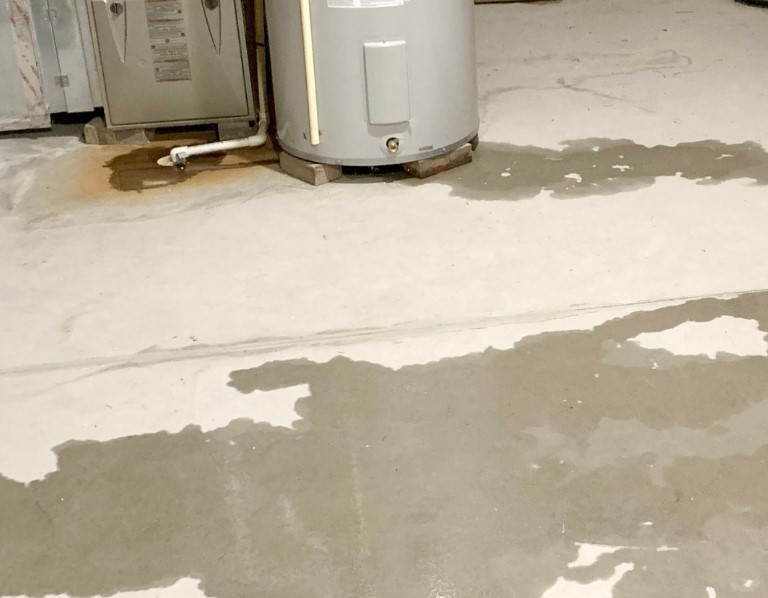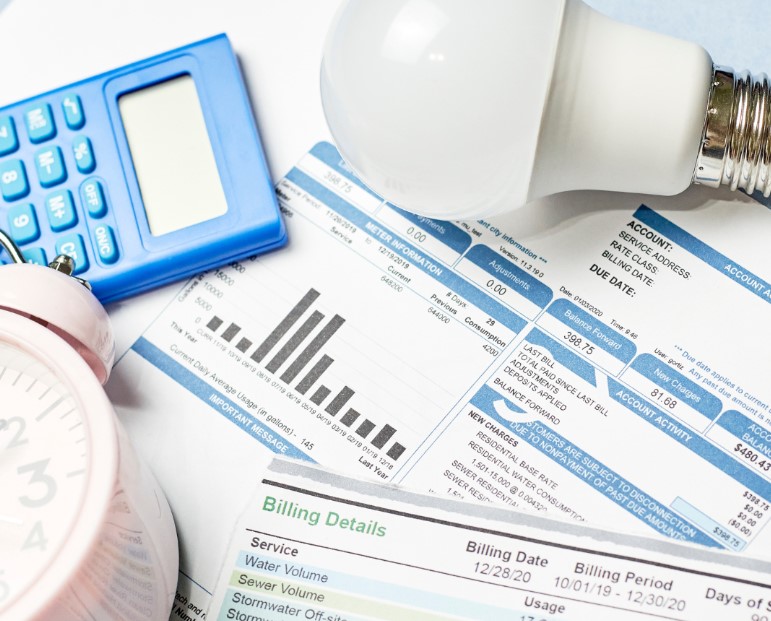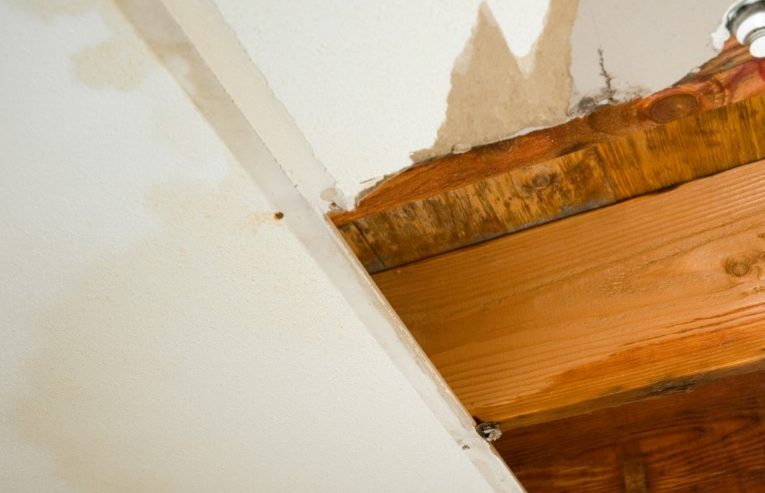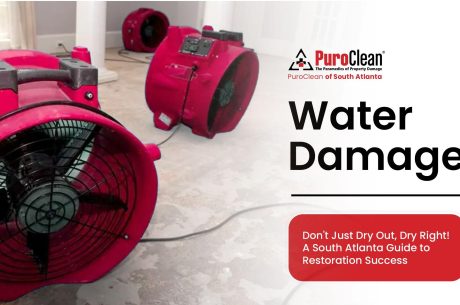Water damage is a common issue for homeowners in South Atlanta and it’s more than just a nuisance.
It can significantly impact your home’s energy efficiency. This, in turn, can lead to higher utility bills.
But how does water damage affect energy efficiency? And what can you do about it?
This article will explore the link between water damage and energy efficiency. We’ll discuss how leaks and moisture can affect your utility bills.
We’ll also provide practical tips to improve your home’s energy efficiency. And guide you toward professional water restoration services if needed.
Whether you’re currently dealing with water damage or want to prevent future issues, this guide is for you.
Understanding Water Damage in South Atlanta
South Atlanta’s climate can contribute to water damage in homes. High humidity and frequent rainfall can lead to leaks and moisture buildup.
Damage from water can come from various sources like roof leaks, plumbing issues, and flooding.
It’s crucial to be aware of the signs of damage; look for stains, peeling paint, or a musty smell.
Prompt response is essential and prevents further energy loss and structural damage.
The Link Between Water Damage and Energy Efficiency
Water damage can significantly affect a home’s energy efficiency. It does this by damaging insulation and creating air leaks.
Moisture from leaks can lead to mold growth. This can deteriorate building materials and insulation.
A home’s thermal envelope is crucial for energy efficiency. It keeps conditioned air inside and water can compromise this envelope.
Increased humidity from unresolved damage can strain HVAC systems. This leads to higher energy costs.
Here are some key points to remember:
- Water can damage insulation and create air leaks.
- Mold growth from moisture can deteriorate building materials and insulation.
- Water can compromise a home’s thermal envelope.
- Unresolved damage can lead to increased humidity and higher energy costs.
Proper repair is essential. It maintains a home’s thermal envelope and prevents energy loss.
Common Sources of Damage and Their Impact on Energy Costs
Water damage can come from various sources. These include roof leaks, plumbing issues, and flooding. Each source can have a unique impact on a home’s energy efficiency.
Roof leaks, for example, can ruin attic insulation. This leads to significant energy loss. Plumbing issues can cause hidden leaks, leading to long-term energy inefficiency.
Flooding can cause extensive damage to a home’s structure. It can compromise the thermal envelope and increase energy costs. Quick response to water damage is crucial to prevent further energy loss and structural damage.
Detecting Water Leaks to Preserve Energy Efficiency

Water leak detection should be a regular part of home maintenance. It helps prevent long-term energy inefficiency. Early detection can save homeowners from costly repairs and high utility bills.
Smart home technology can assist in early water leak detection. Devices like smart water sensors can alert homeowners to leaks before they cause significant damage.
Here are some signs of water leaks to watch out for:
- Unexplained increase in water bills
- Damp spots or discoloration on walls and ceilings
- Musty smell in certain areas of the house
Remember, professional water damage restoration services can help identify hidden moisture. This moisture can compromise a home’s energy efficiency.
The Role of Water Restoration Companies in Energy Efficiency
Water restoration companies play a crucial role in maintaining a home’s energy efficiency. They offer specialized services to address damage and its impact on energy efficiency.
These professionals can identify and repair areas affected by water damage. They ensure the home’s thermal envelope, which keeps conditioned air inside, is maintained.
Water restoration processes often include water extraction, dehumidification, and restoration of damaged areas. These steps help restore the home’s energy performance.
Remember, the cost of water damage repair can be offset by the energy savings from improved efficiency.
Energy Efficiency Tips for Water-Damaged Homes
If your home has suffered damage, there are several steps you can take to improve its energy efficiency.
First, consider the materials used in water damage repair. Opt for energy-efficient materials that can withstand moisture and prevent future damage.
Second, consider upgrading to water-resistant materials during repairs. These materials can contribute to your home’s long-term energy efficiency.
Here are a few more tips to consider:
- Regularly inspect your home for signs of water damage, such as stains, peeling paint, or a musty smell.
- Consider an energy audit to reveal areas where water damage affects your home’s energy use.
- Use smart home technology for early water leak detection and prevention.
- Consider sustainable building practices to enhance your home’s resilience to water damage and improve energy efficiency.
Remember, maintaining your home’s energy efficiency is not just about reducing utility bills. It’s also about creating a comfortable and healthy living environment.
Water Damage Repair and Its Effect on Utility Bills

Water damage repair is not just about restoring the aesthetic of your home. It’s also about improving its energy performance.
When water damage is left untreated, it can lead to increased humidity. This forces your HVAC system to work harder, raising your energy costs.
On the other hand, repairing water damage promptly can prevent the spread of damage. It also protects your home’s energy efficiency, leading to significant savings on your utility bills.
In the long run, the cost of water damage repair can be offset by the energy savings from improved efficiency.
Preventative Measures to Protect Your Home’s Energy Efficiency
Preventing water damage is a proactive way to maintain your home’s energy efficiency. Proper landscaping and drainage can reduce the risk of water damage.
Smart home technology can also assist in early water leak detection and prevention. This can help you address potential issues before they escalate into significant water damage.
Consider the following preventative measures:
- Regular inspections for water damage and leaks
- Installing water leak detectors in high-risk areas
- Regular maintenance of your home’s exterior to prevent water intrusion
- Proper insulation and ventilation to prevent moisture buildup
By taking these steps, you can protect your home from water damage and maintain its energy efficiency.
Conclusion: The Importance of Addressing Water Damage for Energy Conservation
Addressing water damage promptly is crucial for maintaining your home’s energy efficiency. It not only prevents further structural damage but also helps in conserving energy.
In South Atlanta, where humidity and rainfall can contribute to water damage, being proactive can lead to significant savings on utility bills.
For expert water damage restoration services in Hapeville, contact PuroClean of South Atlanta today!




 PuroClean of South Atlanta
PuroClean of South Atlanta